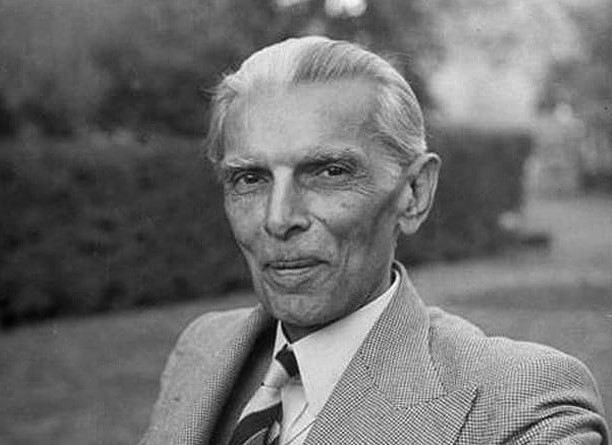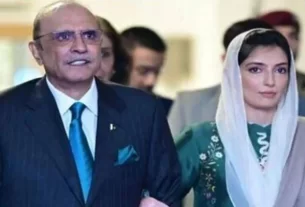1.The Quaid-e-Azam Legacy
Quaid-e-Azam, also known as Muhammad Ali Jinnah, was an important figure in Pakistani history. He was born in Karachi on December 25, 1876, and became well-known for his leadership in promoting Muslim rights in British India. Jinnah’s path from a young lawyer to the head of the All-India Muslim League and, ultimately, to the creation of Pakistan, bears witness to his unflinching dedication to the goals of his people.
2. The Childhood and Political Awakening of Jinnah
Jinnah’s viewpoint and intellectual interests were affected by his early schooling in Karachi and Bombay (now Mumbai). His lobbying and negotiating talents were refined during his law education in London. Jinnah first got involved in politics as a member of the Indian National Congress, where he promoted harmony between Muslims and Hindus. But when the political landscape changed, he emerged as a major player in the call for an independent Muslim state.
Jinnah’s leadership had solidified into a potent force for Pakistan’s creation by the 1940s. During this time, he expressed in his writings and speeches a clear vision of what Pakistan should become: a country where Muslims could live in peace and wealth and practice their religion freely.
3. Muhammad Ali Jinnah’s Quaid-e-Azam’s Beautiful Vision
You are at liberty to visit your mosques, temples, or any other place of worship inside the boundaries of the State of Pakistan. It is irrelevant to the affairs of the State what faith, caste, or creed you follow. Quaid-e-Azam The three main tenets of Leader Ali Jinnah’s idea vision for Pakistan were social justice, religious freedom, and democracy. In his ideal Pakistan, everyone would be able to coexist in harmony and equality, regardless of socioeconomic standing or religious beliefs. His well-known address delivered on August 11, 1947, to the Pakistani Constituent Assembly brilliantly summarizes these concepts.
4. A Key Role of Jinnah’s Leadership in the Establishment of Pakistan
Because of Jinnah’s leadership, which united the Muslims of the subcontinent behind a common objective, Pakistan was able to come into being. His strategic thinking, legal expertise, and good communication skills made him a formidable force in British India’s political system. He played a pivotal role in assisting Muslims in articulating their aspirations for a unique nation in which they could openly practice their religion and uphold their cultural customs.
The Muslim League, led by Jinnah, matured into the political movement that ultimately secured the creation of Pakistan. His steadfast dedication to Muslim rights allowed the aim of an independent Muslim state to become a reality. Rather than just pursuing economic maneuvers, his leadership centered on helping Muslims form a sense of national identity that could serve as the foundation of a future state of Pakistan.
5. Democracy’s Role in Jinnah’s Vision
Democracy strongly supported by Jinnah. In his ideal Pakistan, justice and equal representation for all people would be the cornerstones of a democratic government. He felt that the voice of the people was a nation’s greatest asset and that minority rights should be protected while the majority’s will should be reflected in governance.
Given Pakistan’s ongoing political unrest, Jinnah’s emphasis on democracy especially pertinent today. His support for openness, the rule of law, and the value of institutions continues to serve as a beacon for the political elite of the country. It imperative that Pakistan’s political structure change to reflect the democratic ideals that Jinnah promoted if his legacy is to be properly honored.
6.Jinnah’s Social Justice Commitment
Social justice was one of Jinnah’s main principles. In his view, the state ought to endeavor to eradicate destitution, furnish equal prospects for every member of the populace, and guarantee that no one faces prejudice on account of their ethnicity, faith, or socioeconomic standing. Jinnah fought for Pakistan because he wanted to establish a society based on equality and justice, not merely a separate state for Muslims.
Today’s Pakistan still has social justice as a major concern. Although the nation has achieved progress, there are still many obstacles to overcome, particularly in the areas of economic inequality, access to healthcare, education, and the legal system. Reexamining Jinnah’s vision will allow Pakistan to concentrate on putting policies into place that advance equity and justice for all of its
7.Religious Liberty: A Fundamental Aspect of Jinnah’s Vision
A fundamental component of Jinnah’s vision for Pakistan was religious freedom. He insisted that Pakistan should be a country where people of all religions could live in harmony with one another rather than a theocratic state. His emphasis on minority rights preservation and religious tolerance was revolutionary, particularly in light of the religious tensions that prevailed in India prior to division.
Religious freedom is a highly crucial topic in Pakistan even after Jinnah’s death, 76 years ago. Although Pakistan has made progress in safeguarding minority communities and fostering tolerance, more has to be done to completely realize Jinnah’s goal. Promoting religious concord and guaranteeing that every individual feels safe in expressing their beliefs are crucial for Pakistan’s national development.
8. The Future of Pakistan Is in Education
Believing in the potential of education was one of Quaid-e-Azam’s most progressive visions. Jinnah repeatedly underlined the value of education in creating a powerful, affluent, and independent country. He realized that Pakistan’s development and stability depended on having an educated populace.
In his talks, Jinnah pushed young people to concentrate on learning things that would enable them to support the growth of their country. Pakistan still views education as a vital field, and major expenditures are needed to raise the sector’s infrastructure, quality, and accessibility. Pakistan may allow its youth, encourage creativity, and attain sustainable progress by placing a high priority on education.
9. Jinnah’s Address to the Young: Pakistan’s Future Leaders
Quaid-e-Azam had a great deal of faith in Pakistan’s young since he saw them as the nation’s future leaders and destiny keepers. He regularly urged students and young people to put forth a lot of effort, maintain discipline, and make valuable contributions to society in his speeches to them. He thought that Pakistan’s youth could continue the ideals he had battled for and mold the country’s destiny.
After seventy-six years, Pakistan’s youth still have a significant impact on the country’s progress. Pakistan’s progress is largely dependent on the younger generation, with over 60% of the population under 30. Pakistan’s youth may lead the nation by embracing Jinnah’s values of education, diligence, and social responsibility.
10.The Importance of Quaid-e-Azam Even Now in Contemporary Pakistan
The world is changing quickly, but Quaid-e-Azam’s vision is still relevant today more than ever. Pakistan is dealing with a number of issues, such as social unrest, economic disparity, and political instability. On the other hand, Jinnah’s ideas offer a path through these challenges. His emphasis on justice, democracy, and religious liberty provides enduring answers to problems that still afflict the country.
By examining Jinnah’s legacy and restating its dedication to his principles, Pakistan may fortify its democratic establishments, advance socioeconomic equity, and cultivate a more comprehensive community. Jinnah’s vision is a dynamic blueprint for Pakistan’s future, not merely a remnant from the past.
11. Honoring the Legacy of Jinnah on the 76th Anniversary of His Death
It is appropriate to both celebrate and reflect on Quaid-e-Azam’s 76th anniversary of his passing. Pakistan’s people have the chance to pay tribute to the man who founded their nation and consider how far the nation has come in achieving his vision. On this day, events across the nation include speeches, debates, and ceremonies to honor Jinnah’s enduring legacy.
Also Read: 77th year of Independence and National Integration




